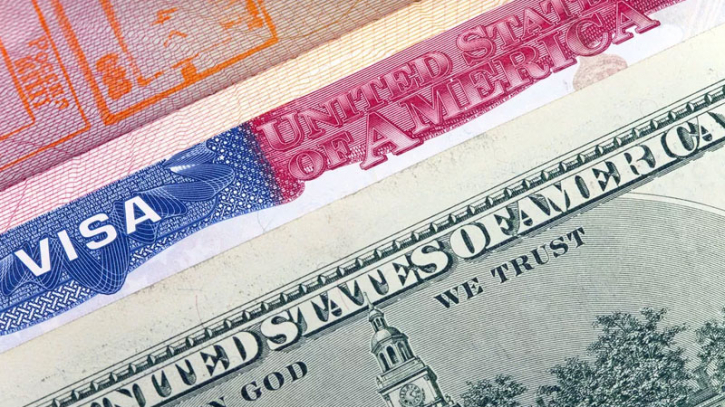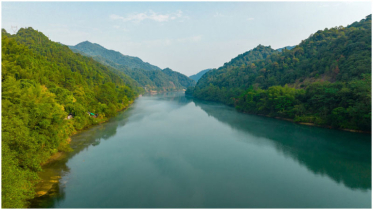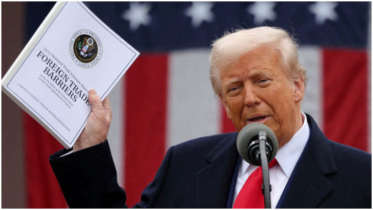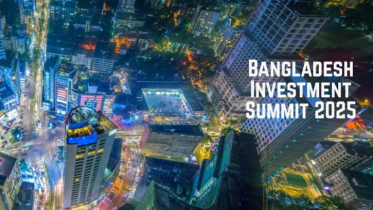What are the after-effects of US visa policy?

Finally, the US visa policy for Bangladesh came into effect. This visa policy was announced for the purpose of the 12th Jatiyo Sangsad elections. But it seems that the "rhetoric" of the US visa policy sounds "stronger" than the "much discussed" twelfth national parliament election of Bangladesh! The United States announced its visa policy on May 24, 2023. The announced policy came into force from last Friday, 22 September 2023. In this regard, the spokesperson of the US Embassy in Dhaka, Matthew Miller, said in a press statement on September 22, "Today, the State Department is taking steps to impose visa restrictions on Bangladeshi individuals responsible for or involved in undermining Bangladesh's democratic election process. These individuals include law enforcers, members of the ruling party and members of the political opposition." That is, the members of both the government and opposition parties are on this ban list.
The US promulgates and enforces visa policies despite what might be considered a threat to an independent sovereign nation. What causes work inside and outside? One aspect of this is America's efforts to maintain its sphere of influence in South Asia as well as other regions. It should also be remembered that Bangladesh is an important state in terms of geopolitical strategy as a connector between South and South East Asia.
Along with the history of maintaining US influence in South Asia, one can recall the American efforts to control the events of Bangladesh's Liberation War under the leadership of Father of the Nation Bangabandhu Sheikh Mujibur Rahman. In this context, B.Z.Khasru's research book titled Myths and Facts Bangladesh Liberation War: How India, US, China and USSR shaped the outcome published in 2010 can be mentioned. In the book, the author unravels the mystery surrounding the 1971 South Asian War (i.e. Bangladesh Liberation War). Through extensive research and thorough analysis, the author describes what caused the war, how it was waged, and how world powers shaped its outcome.
US Assistant Secretary for South and Central Asia Donald Lu gave a media interview on various issues including the process of applying the visa policy. "We have said from the beginning that we will not disclose the names of those who will be subject to visa bans under this policy," said Donald Lu. Any visa records, including those not issued to anyone, are confidential information under US law.
"All I can say is that since this policy was announced, we have seen the whole situation very closely. After a thorough review of the evidence, we have imposed visa restrictions on law enforcement agencies, members of the ruling party and members of opposition political parties.''
He said the purpose of the visa policy is to be a constructive partner of the people of Bangladesh by reducing violence and preventing any activities that hinder free and fair elections.
Donald Lu's statement applies to BNP-Jamaat alliance because we have seen it in the past and are still seeing it now. Jamaat-Shibir along with BNP carried out terror across the country in the name of anti-government protests, killing, raping and looting freedom fighters and Awami League workers in 2014 including arson and petrol bombings. Even in 2001, BNP-Jamaat made this kind of incident.
Donald Lu added that this principle applies not only to Election Day, but to the entire democratic election process. We do not know the exact date of the election, but it is clear that the election process is in full swing. What the Bangladeshis want, the United States also wants. That is, the United States wants a peaceful, free and fair election in Bangladesh. Donald Lu's statement is undoubtedly balanced.
The visa ban in the United States has created an adverse reaction in the public opinion of the country. The question is what is the reason for such an announcement at this moment? It is understood that the announcement is precautionary and can be considered as a precautionary measure to ensure fair and peaceful elections.
The announcement of the visa ban led to the emergence of anti-American sentiment among the public, especially among supporters of the government. Libya, Iraq, and South America have thus generated anti-American sentiment.
BNP's participation in the election will not be determined by this visa policy, but BNP will actually come forward after the election to apply the visa policy considering the overall situation. And if the BNP does not participate in the elections and chooses violent means to disrupt the elections like in the past, they will again come under the US visa ban.
Will the US visa policy in Bangladesh make a group more aggressive/enthusiastic/inflexible? Which can be counterproductive? This may encourage pro-Chinese and pro-Russian individuals. B. Z. Khosru's research findings mentioned above may be recalled here.
In May of this year, visa restrictions have been imposed on some African countries Nigeria, Uganda and Somalia. Visa bans were imposed after elections in these countries. There are questions about how effective the visa ban has been in these countries. Of these, only Somalia has been effective by sanctions. There has been some improvement in the electoral system. The reason for this is Somalia, has many problems including political chaos, drought, poverty and militancy. One of the main problems of the country is that they can never hold elections on time. Elections are repeatedly postponed due to various reasons including ethnic violence, instability, security.
The elections were scheduled to be held in February 2021. Even after a year has passed, it has not happened. For this reason, the United States announced the visa policy for Somalia in February 2022. America imposes visa restrictions on some officials and individuals of the country for not having a quick and fair election. The country also has a US military base.
The United States also has visa restrictions on numerous citizens of North Korea, Iran, China, and Russia. These countries have also imposed counter-sanctions on various individuals and officials of the United States. The US visa ban raises further questions in informed circles. These are, is not US visa policy a threat to an independent sovereign country?
Does the United States have any other purpose behind the visa policy? How should the common people of Bangladesh accept the visa policy? Historically, the US has not been able to change regimes through visa bans.
Professor Dr. Arun Kumar Goswami, Director, Centre for South Asian Studies (CSAS), Dhaka.
Source: Daily Observer.
.png)




